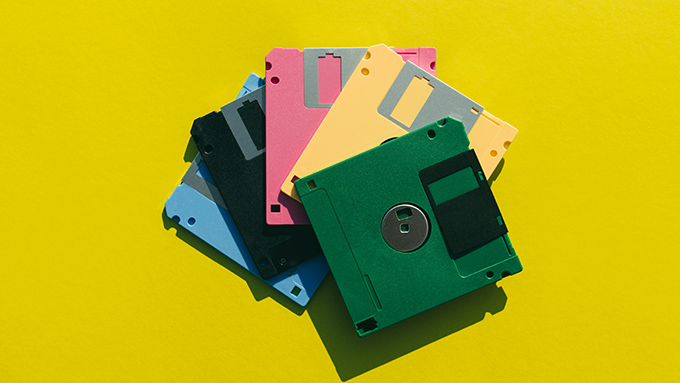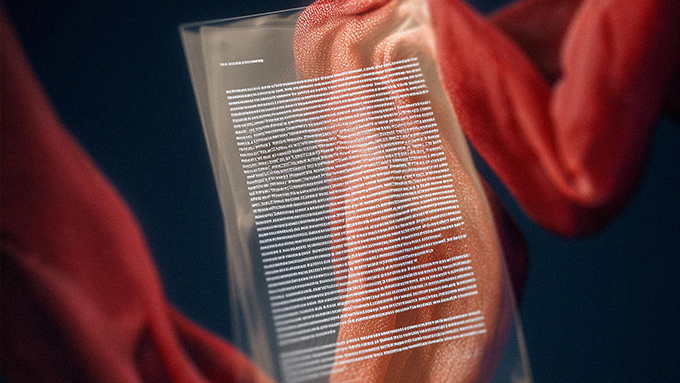Employee Inventions
Introduction
Pursuant to Industrial Property Law No. 6769 (“IPL”), employee means persons and public servants who dependently provide services to another person under a private law agreement or a similar legal relation, and under the obligation to perform services with respect to particular work designated by the employer. The IPL and the Regulation on Inventions of Employees, Inventions Realized in Higher Education Institutions and in Publicly Supported Projects published in the Official Gazette dated 29.09.2017 and numbered 30195 (“Regulation”)[i] foresees certain rights and obligations for the employees and the employers in the event of realization of an invention by the employee.
Identification of In-service Inventions
Pursuant to Article 113 of the IPL, inventions (i) realized based on activities undertaken by an employee in a facility or a public agency; or (ii) essentially based on the experience and studies in a facility or a public agency are deemed in-service invention. The remaining inventions are deemed independent inventions.
Additionally, the Article 20 of the Regulation foresees three groups of inventions to serve as the basis for calculation of the compensation to be paid to employees on the invention. Accordingly, the first group consists of the inventions originated from the assignment given by the facility, and not consisting of contribution by the facility.
The second group comprises the inventions that do not directly originate from assignment in the facility, but which are (i) realized for the needs identified by the facility, (ii) for the solution of the problems identified by the facility or (iii) contributed to by facility.
The third and last group consists of the inventions that are directly originated from the assignment given by the facility, and which consist of the full contribution of the facility.
Obligations of the Parties
In the event that an invention is realized by an employee, the notification to be made to the employer by the employee, demand of the employee concerning the invention, compensation to be paid to the employee, and the patent application of the invention, are examined under this section.
Obligations of Employee
Obligation of Notification
The IPL foresees obligation of notification to employees for both in-service inventions and independent inventions. While no certain time period is foreseen for the notification, it states that notification should be served without delay. Notification may be served upon the department manager determined by the employer or, in the event that no such determination is made, to the department manager of the employee who realized the invention. If the invention is realized by multiple persons, such notification may be served together.
Content of the notification defers to the qualification of the invention. In the event that the invention subject to notification is an in-service invention, notification consists of technical issues, its resolution and information as to how the invention was realized. The employee indicates verbal and written instructions given, experience and studies benefitted, the other employees who contributed to the invention, if any, and the scope of contributions of such employees and him/herself in the notification.
In the event of an independent invention, the notification includes the manner of realization of the invention, thus enabling the employer to make a judgment as to whether the invention is an independent invention. If it is clear that the invention cannot be used within the activity area of ??the employer, the employee has no notification obligation. However, even if the independent invention is not within the scope of activities of the workplace, and yet the workplace is in genuine preparation to operate in the field where the invention is concerned, the employee is obliged to offer the employer utilization of his/her invention, without granting full rights prior to the employee beginning the utilization of its independent invention. If the employer does not respond within three months from the date upon which the proposal was received, it loses its priority right.
The employer in under the obligation to notify the employees of the date upon which the notification is served upon him/her. In the event of breach of the notification obligation, the employer is responsible for the damages suffered by the employee. Additionally, IPL grants the right to initiate a lawsuit of unauthorized assumption on patent or patent application, as the case may be. Accordingly, in the event that the patent application of the employee has not been finalized, a lawsuit of unauthorized assumption on patents, pursuant to the Article 110 of the IPL, may be initiated; and if a patent is granted to the invention lawsuit of unauthorized assumption on patent right pursuant to the Article 111 of the IPL may be initiated.
The employer places partial or full right demand within four months starting from the receipt of the notification to the employer through a written notification. In the event that such notification is not served, the invention becomes an independent invention.
In the event that the employer places a partial rights demand on the invention, such invention becomes an independent invention and, in such case, the employer may utilize the invention. If such utilization of the employer complicates essentially utilization of the invention by the employee, the employee is entitled to request acquisition of the rights on invention in full, or waiver of partial utilization rights from the employer. If the employer does not respond within two months from the receipt of the notification, the utilization rights terminate.
Confidentiality Obligation
The employee is under a confidentiality obligation on the invention so long as it does not qualify as a free invention.
Obligations of Employer
Obligation of Payment
If the employer demands full rights of the invention, the employee is entitled to demand payment of a reasonable compensation. In the event that the employer demands partial rights and utilizes the invention, the right to demand payment by the employee arises.
The economic feasibility of the in-service invention, the duty of the employee, and the share of the employer in realization of the invention are taken into consideration for calculation of the compensation. In this context, the compensation is calculated according to the groups foreseen under Article 20 of the Regulation, by multiplying the income generated from the invention by the coefficients indicated in Article 21 of the Regulation for each groups. If the in-service invention is realized by multiple employees, compensation and payment terms are determined separately for each employee.
Application Obligation
The employer has the obligation to make a patent application with regard to the invention upon which it has placed full rights. Such application obligation ceases if (i) the service invention is an independent invention, (ii) the employee does not consent to the application for his/her invention, or (iii) the protection of trade secrets requires application not to be made.
Additionally, if the interests of the employer are injured by the application, the employer may refrain from making application. In that event, absence of the application is taken into consideration in the calculation of the compensation.
Confidentiality Obligation
If the employer does not demand full rights, the employer is obliged to keep the information concerning the invention declared to him confidential for the duration of the employee"s rightful interests.
Mandatory Nature of Provisions
Provisions with regard to inventions of employees are relatively mandatory and cannot be changed through agreement to employee. The freedom of contracts of the parties for inventions of employees commences with the patent application on in-service inventions, in the case of independent inventions with the obligation of notification of the employee.
The IPL foresees that in the event that the agreements on inventions of employees do not comply with fairness, the same are deemed invalid even if they do not contradict the IPL, and the invalidation may be claimed until the end of the six months period starting from the termination of the employment agreement.
Conclusion
The IPL has not introduced essential amendments on the inventions of the employees. However, it foresees certain additional regulations concerning criteria on the determination of the compensation to be paid to the employee, as well as the obligation of a patent application.
[i] http://www.mevzuat.gov.tr/Metin.Aspx?MevzuatKod=7.5.23927&MevzuatIliski=0&sourceXmlSearch=%C3%A7al%C4%B1%C5%9Fan%20bulu%C5%9Flar%C4%B1na,%20y%C3%BCksek%C3%B6%C4%9Fretim%20kurumlar%C4%B1nda%20ger%C3%A7ekle%C5%9Ftirilen%20bulu%C5%9Flara%20ve%20kamu%20destekli%20projeler (Access Date: 03.02.2018).
All rights of this article are reserved. This article may not be used, reproduced, copied, published, distributed, or otherwise disseminated without quotation or Erdem & Erdem Law Firm's written consent. Any content created without citing the resource or Erdem & Erdem Law Firm’s written consent is regularly tracked, and legal action will be taken in case of violation.
Other Contents

Although trademark protection grants the proprietor strong and exclusive rights, its continuation is contingent upon the trademark being genuinely and functionally used in commercial life. Article 9 of the Industrial Property Code No. 6769 (“IPC”) authorizes the cancellation of a registered trademark where…

The Law on Intellectual and Artistic Works No. 5846 (“LIAW”) conditions the recognition of an intellectual product as a “work” (eser) under the LIAW—and thus its protection—on two fundamental criteria: the intellectual product must fall within one of the categories of works explicitly enumerated in the LIAW and bear...

In today's competitive business environment, the protection of trademarks plays a vital role in maintaining the competitive advantage of businesses and ensuring consumer trust. In this context, the protection of well-known trademarks is of particular importance in preserving the commercial value and reputation of...

It is observed that there are changes in the legislation and judicial decisions as to whether the use of a previously registered trademark or a trademark for which a registration application has been filed can be considered as trademark infringement by third parties by using the trademark as a trade name...


Today, the globalization of economic activities leads to the transfer of numerous personal data internationally during the daily operations of companies. Therefore, like many national and international data legislations, Law No. 6698 on the Protection of Personal Data (“PDPL” or “Law”) includes protective...

The relationship between the author and the product of their creative activity is protected by moral rights. The moral rights of the author set out in the Intellectual and Artistic Works Act numbered 5846 (“IAWA”) include the authority to disclose the work to the public, the authority to designate the name...

The Court of Cassation has evaluated the criteria related to the similarity of the trademark in all of these decisions, and while showing how the criteria will be applied, it has also helped to determine the boundaries of the term “likelihood of confusion”. In this article, four different 2022 decisions...

The right to property, which is one of the concepts and values underlying the liberal economic and legal system, regulates the ownership relationship between the person and goods. The scope of the term “goods,” which is the subject of the concept of property...















